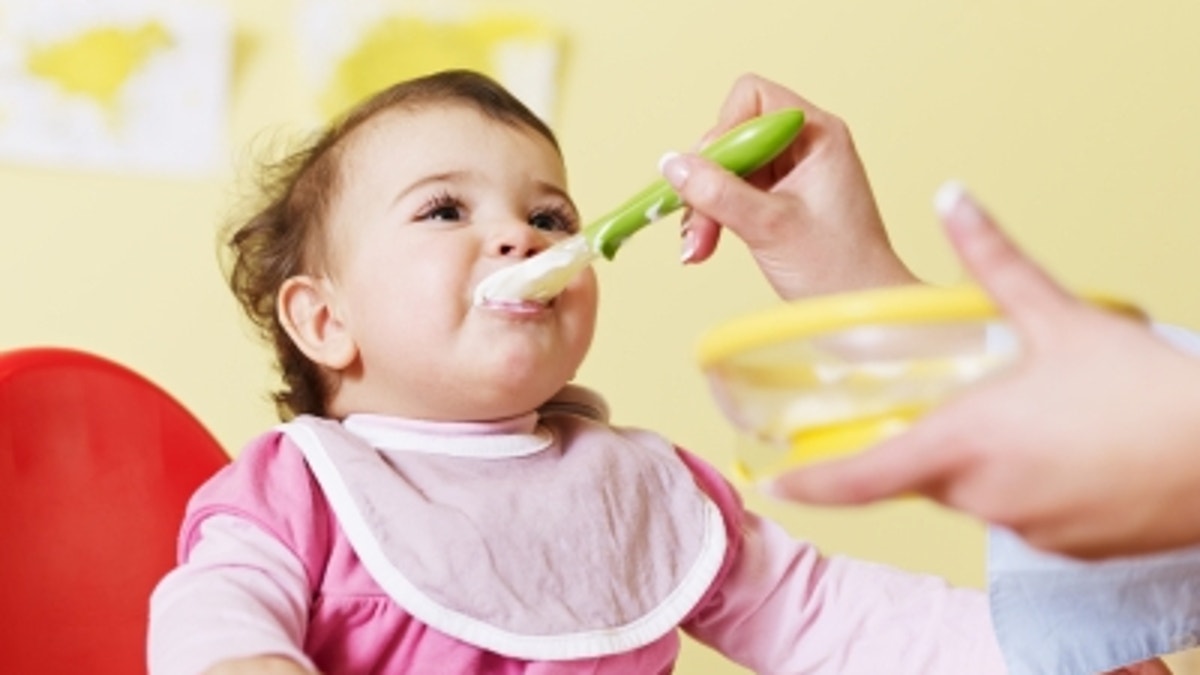
mom giving homogenized food to her daughter on high chair. Horizontal shape (iStock)
Babies who are breast-fed or bottle-fed on demand perform better academically than those who are fed on a schedule, according to a study published Sunday.
Using data from more than 10,000 children, researchers found that demand-fed babies scored four to five points higher on IQ tests at age eight.
Demand-feeding also was associated with higher scores in school tests at ages five, seven, 11 and 14, according to the study, published in the European Journal of Public Health.
"The difference in IQ levels of around four to five points, though statistically highly significant, would not make a child at the bottom of the class move to the top, but it would be noticeable," lead researcher Maria Iacovou said.
She added, "To give a sense of the kind of difference that four or five higher IQ points might make, in a class of 30 children, for example, a child who is right in the middle of the class, ranked at 15th, might be, with an improvement of four or five IQ points, ranked higher, at about 11th or 12th in the class."
However, the researchers, from the University of Essex and the University of Oxford, found that feeding babies on a schedule did have benefits for mothers and urged caution in interpreting the findings.
"At this stage, we must be very cautious about claiming a causal link between feeding patterns and IQ ... more research is needed to understand the processes involved," Iacovou said.
